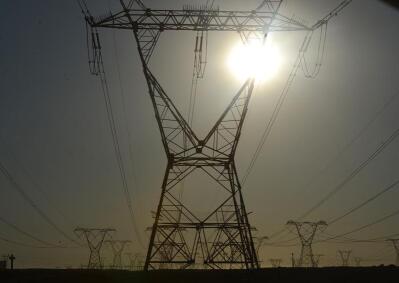Achieving a crucial financial turnaround, Lekwa Local Municipality gains approval for the Eskom Debt Relief Programme, committing to stringent fiscal reforms and enhanced service payment systems for a sustainable future.
Achieving a crucial financial turnaround, Lekwa Local Municipality gains approval for the Eskom Debt Relief Programme, committing to stringent fiscal reforms and enhanced service payment systems for a sustainable future.
Eskom’s mission to reduce the billions in debt owed to it by failing municipalities received a massive boost after the Lekwa Local Municipality’s application to participate in the
This programme is structured to phase out municipal debts to Eskom accrued as of March 31, 2023, over a span of three years through equal annual deductions.
Struggling under the weight of unpaid bulk electricity services, Lekwa’s debt to Eskom had escalated to a daunting R1.8 billion, inclusive of interest and penalties. This figure also encompasses the municipality – which is in the province of Mpumalanga – existing payment agreements with the power utility.
Delani Thabethe, Lekwa’s Executive Mayor, embraced the Treasury’s approval as a testament to the municipality’s recovery from dysfunction.
“This another endorsement that our efforts has indeed taken this municipality out of dysfunctional zone and is now functional, as we have met the toughest conditions for our application to participate on this debt relief programme approved by the National Treasury,” said Thabethe.
Thabethe further remarked that the debt write-off would substantially ease the municipality’s financial strain, as the outstanding Eskom debt significantly surpasses its annual budget.
He pledged the municipality’s dedication to adhere to the programme’s terms, as outlined in the referenced MFMA Circular.
While acknowledging the significance of this milestone, Thabethe also highlighted the increased responsibilities that come with it.
He emphasised the importance of ensuring timely payments for services and addressing the needs of indigent citizens through proper application procedures. The municipality is set to announce new initiatives aimed at boosting service payment compliance and aiding those unable to pay.
Reflecting on the broader implications of such financial interventions, Finance Minister Enoch Godongwana said during the MTBPS on November 1 that the ultimate objective is to transform these municipalities fundamentally. The goal is to empower them to establish financial resilience, bolster their ability to generate sustainable revenue, and reignite the practice of paying for services received.
According to Eskom, South Africa’s municipal debt crisis has reached a new peak, with arrears hitting a staggering R58.5 billion at the end of March 2023.
This marks a significant 30% increase from the R44.7 billion recorded in the previous year. The lion’s share of this debt, approximately 78%, is attributed to the top 20 defaulting municipalities.
Eskom, the national power utility, has been actively pursuing measures to collect outstanding debts, but these attempts have so far failed to stem the tide, as arrears continue to mount, it said in a statement.
A high-level and concerted effort involving multiple stakeholders is now deemed essential.
The utility is placing its hopes on the Municipal Debt Relief initiative spearheaded by the National Treasury, which is designed to assist municipalities in navigating their historical debt dilemmas and to improve Eskom’s financial health.
An optimistic development has emerged, as the majority of municipalities have sought out National Treasury’s debt relief programme.
To date, 52 municipalities have secured approval, with six receiving conditional nods.
Monde Bala, Eskom’s Group Executive for Distribution, pointed out the positive trend of municipalities embracing the relief programme, while acknowledging that some have yet to respond favourably.
IOL News

